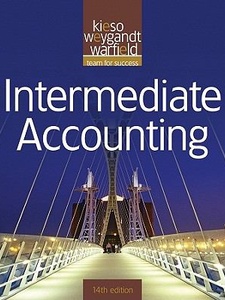Kinh Nghiệm về Which of the following is an advantage of a limited liability company quizlet? Mới Nhất
Cao Nguyễn Bảo Phúc đang tìm kiếm từ khóa Which of the following is an advantage of a limited liability company quizlet? được Cập Nhật vào lúc : 2022-11-15 16:56:03 . Với phương châm chia sẻ Kinh Nghiệm Hướng dẫn trong nội dung bài viết một cách Chi Tiết Mới Nhất. Nếu sau khi tham khảo Post vẫn ko hiểu thì hoàn toàn có thể lại Comment ở cuối bài để Tác giả lý giải và hướng dẫn lại nha.Nội dung chính Show
- What are the advantages and disadvantages of a limited liability company quizlet?Which of the following business type has the advantage of limited liability?Which is an advantage of a limited partnership quizlet?What is a limited liability company quizlet?
 Fundamentals of Financial Management, Concise Edition
Fundamentals of Financial Management, Concise Edition10th EditionEugene F. Brigham, Joel Houston
777 solutions
 Mathematics with Business Applications
Mathematics with Business Applications6th EditionMcGraw-Hill Education
3,760 solutions
 Marketing Essentials: The Deca Connection
Marketing Essentials: The Deca Connection1st EditionCarl A. Woloszyk, Grady Kimbrell, Lois Schneider Farese
1,600 solutions
 Mathematics with Business Applications
Mathematics with Business Applications6th EditionMcGraw-Hill Education
3,760 solutions
Recommended textbook solutions
 Mathematics with Business Applications
Mathematics with Business Applications6th EditionMcGraw-Hill Education
3,760 solutions
 Fundamentals of Financial Management, Concise Edition
Fundamentals of Financial Management, Concise Edition10th EditionEugene F. Brigham, Joel Houston
777 solutions
 Intermediate Accounting
Intermediate Accounting14th EditionDonald E. Kieso, Jerry J. Weygandt, Terry D. Warfield
1,471 solutions
 Mathematics with Business Applications
Mathematics with Business Applications5th EditionMcGraw-Hill Education
3,755 solutions
Factors in deciding the type of business entity
1) Ease of operation
- set up costs
- difficulty of operation
2) desired length of existence of the business
3) personal liability
4) tax consequences of the form chosen
5) ease of sale of the business
6) ease of raising capital
Major types of business organizations
1)
historically there were three
- sole porprietorship
- partnership
- corporation
2) more recently
- limited liability company
Sole Proprietorship
1) oldest and simplest form of business organization
2) nor formalities to forming sole proprietorship, assuming you have the legal right to operate that type of business
3) legal rights to operate the business can include
- having certain
degree
- permits
- any other requirements
4) once created there are no special requirements to operate
5) business and owner are the same thing
6) major disadvantages
a) unlimited liability
- owner will be personally responsible for the debt
b) difficulty of selling the business
c) difficulty in raising capital
- very difficult to get investors
- limit to the amount of credit that the one owner can have
- difficult for the owner to borrow money
7) taxes paid by owner
8) most popular form
Partnership
1) sole proprietor can raise capital by taking a partner into business
2) management of the partnership is a joint operation between all the partners
3) can technically operate with no formalities
4) should have a written detailed partnership agreement specifying:
- relationship of partners to each other
- responsibilities
of partners - management
- duration
- split of profits/money
- any other vital information necessary to operate the partnership
5) least favored type of historical business entity
6) each partner is liable for all the taxes
Corporation
1) most popular form for a large business
2) most business by volume is conducted by corporations
3) corporation is a separate legal entity
created by state law
- taxed as a separate legal entity
- any income that is dispersed to the owners and shareholders is also taxed
- result is a major disadvantage of the corporate form
- double taxation
4) major advantage of corporate form is limited liability for the owners
- limited to amount of their investment
- only to the limit of their investment
- makes it much easier to raise capital
Limited Partnership
* like a corporation
- created by state statute
- requires a filing of documents to create
- certificate of limited partnership
- with appropriate state official
* part partneship part corporation
- two classes of partners, must have least one of each
1) general partner
- unlimited liability
- responsible for
- all debts
- all liabilities
- fiduciary duty to limited partners
2) Limited partner
-
has limited liability - only liable up to the amount of investment
- only an investor
- can take NO part in management LP
- if they do, become general manager
- unlimited or joint and several liability
- normally paid after the creditors but before general partners in dissolution
* LP only works if the investor does not and will not take part in any of the management of the LP
* LP is a good way for general partners to raise capital by taking in a limited partner
Closely Held Corporations
* also known as
- family corporations
- close corporations
- privately held corporations
1) created under statutory law
2) not publicly traded
- generally operated like a sole proprietorship or partnership
- utilizes the corporate form to take advantage of the limited liability of the corporate firm
3) shares are held by a small number of people personally known to each other
4) can be owned by only one shareholder
5) sine its a corporation, must folloe corporate responsibilities
- must follow all of the sometimes complicated corporate structure
- transfer of shares is severely limited
- have corporate structure
- have the required meetings
6) does have limited liability
7) double taxation
S Corporations
1) is a closely held corporation that meets the requirements of the IRS to qualify as an S corporation
2) meet requirements of S corporation
- taxed like a partnership
- no double taxation
- shareholders have limited liability
3) requirements of an S corporation
* must be a domestic corporation, organized under st. law
* shareholders must be indiv. with limited exceptions
- estates
- some trusts
* no more than 100 shareholders who all agree on the S corporation status
* can only
have one class of shareholders
* shareholders must not be non-resident aliens
4) profits pass directly to the shareholders
- shareholders pay personal income tax on their distribution
- S corporation does not pay taxes
5) advantages largely overshadowed by
LLC
LLP
Professional Corporations
1) available to professionals
- attorneys
- doctors
- dentists
- accountants
2)
major advantage is that it gives limited liability to shareholders
- except fot malpractice of the other attorneys in the PC
- does give for
- tortuous acts of other attorneys in the PC
- liabilities of the contractual obligations of fellow attorneys
3) advantages largely overshadowed by
LLC
LLP
Limitied liability companies
* began in germany in late 1800's
* used in europe and
latin america first
* very appealing form of business entity
- combines the positive aspects of traditional corporations - LLP
- combines the positive aspects of partnership
- flow through taxation
- no double taxation
* generally involve less
- record keeping
- start up cost or registration fees
* St. law
- tx became the first to enact
Creation of LLC
* created by filing articles or organization
1) filed with proper st. official
- in Tx, filed with secretary of st
- called articles of formation
2) must contain
- name
- limited liability company
- limited company
- LLC
- L.L.C.
- LC
- L.C.
- duration which can be perpetual
- purpose of LLC
- address and name of the registered agent
- if LLC has managers, name and address of managers
- name and address of each organized of the LLC
- can be future members
- professional hired to create LLC
* certificateor of organization is issued by the st. official
- issued by appropriate st. official
- birth certificate of the LLC, shows LLC is in existence
Structure of the LLC
* owners are called members and are unlimited in number and can be
- indiv.
- corporations
- other LLCs
* members enter into operating agreement
1) can be called by other
names
- company regulations (texas)
- company agreement
2) can be oral, but some states require it to be in writing
3) governs the
- internal affairs of the LLC and
- relations among members & managers
- thành viên managed
- manager managed
4) can only be amended with the consent of all LLC memebrs
5) should specify
- divison of the income of the members
- how a membership is transferred
- what happens on dissolution
- other important
matters
Governance of the LLC
1) thành viên managed members run the LLC
- resembles a partnership in structure and operation but not in liability
- each thành viên gets one vote in the firms business decisions
2) manager managed
* LLC is run by managers
* managers may appoint officers
- one or more
- may or may not be a thành viên
- to do whatever manager direct them to do within
- the limits
of the operating agreement and applicable st.
law
2) managers are agents for members
- can be members or non members
- can even be a corporation or LLC
- have fiduciary duty to members so must follow
- operating agreement
- applicable state law
* members still have limited liability
* members do not have personal liability for the
- LLC debts
- debts of other members
Dissolution of LLC
1) when occurs
- the end of a fixed period, if any, but can be perpetual
- occurrence of specified events in operating agreement
- action to dissolve by members
- LLC has no members, most states do not terminate the LLC over one thành viên leaving
- entry of a decree of judicial dissolution
2) winding up results from dissolution
- creditors of the LLC paid first
- owners paid last
3) articles of dissolution are to be filed once the winding up is over
4) certificate of dissolution terminates LLC
Advantages of LLC
* limited liability for members
* ease of operations
* not required to have meetings nor keep minutes
* flexibility in taxation
* flexibility in managment
- thành viên managed
- manager managed
* no limit on number or who/what can be members
Disadvantages of LLC
* state law, can vary from state to state
* some types of business cannot be LLCs under st law and IRS rules
- some banks insured by the FDIC
- joint stock associations
- some foreign entities
- insurance companies
* due to the newness of the LLCs
- legal uncertainties
- no case law to explain
* some of these disadvantages may be fixed by 2006 reforms
* people feel that advantages outweigh disadvantages
Limited Liability Partnership
* fairly new business
* Tx was first
* first used by professionals
- accountants
- texas limited it to professionals first
- now open to mostly everyone
- still dominated by professionals
* st. law
* created to avoid some of the earlier problems of LLCs which have now mostly been done away with
Advantages of LLP
1) limits to personal liability
2) normally not liable for partners
- errors
- ommisions
- negligence
- incompetence
- malfeasance of fellow partners in
- torts
- contracts
3) does have potential liability for another partners actions if
- partner directly involved in the wrongful activity
- partner had notice or knowledge of that activity and failed to take reasonable steps to correct
Creation and duration of LLP
- registering with appropriate st. official
- annual fee must be paid by each partner
- annual report on status of LLP is required
* it is separate entity
* partnership is usually required
- to have insurance
- have separate funds available for thay purpose
* partners can have limited liability
* all partners can take part in managment of LLP
* today, overshadowed by LLCs
Limited Liability Limited Partnership
- tries to combine LLP and LP
- general partner can have limited liability like a limited partner in LP
- very limited in scope
- untested
Which of the following is true about a limited liability company
it can last forever
Which of the following is/are
taxed like a partnership even thought that entity is not a
partnership?
Limited Liability Company
S Corporation
Which of the following is true about limited liability companies?
they give all of their owners limited liability
they are much easier to operate than the corporate form
they have flexibility in taxation
they have flexibility in
management
Which business entity was created in Texas in 1991?
LLP
What is the birth certificate of the LLC?
Certificate of Organization
Which of the following types of businesses entities have/has a limited on the type of
owners they can have?
S
corproation
Professional corporation
Which of the following is true about a partnership?
there are no formalities to forming it
What was the first state to have LLCs in the United States?
wyoming
If your primary objective is to be able to raise capital from the public, which
form of
business entity is the correct choice?
corporation
If you want to create a separate legal entity, which form(s) of businesses entities do so?
corporation
limited liability company
What profession first used LLPs in large numbers?
accountants
What are the advantages and disadvantages of a limited liability company quizlet?
The advantages include more financial resources, shared management and pooled knowledge, and longer survival. The disadvantage include unlimited liability, division of profits, disagreements among partners, and difficulty of termination. What is the definition of corporation?Which of the following business type has the advantage of limited liability?
A corporation is a legal entity that's separate from the parties who own it, the shareholders who invest by buying shares of stock. Corporations are governed by a Board of Directors, elected by the shareholders. Advantages include: limited liability, easier access to financing, and unlimited life for the corporation.Which is an advantage of a limited partnership quizlet?
Easier to attract investors because limited partners have limited liability to the business debts. Profits and losses pass through the business to the partners, who are taxed on their own personal income tax returns.What is a limited liability company quizlet?
Definition. A limited liability company (LLC) is a type of business form combining attributes of both corporations and partnerships. It has TWO PRIMARY ATTRIBUTES: (1) the limited liability that shareholders of a corporation enjoy, AND. (2) the tax treatment of a partnership. Tải thêm tài liệu liên quan đến nội dung bài viết Which of the following is an advantage of a limited liability company quizlet?